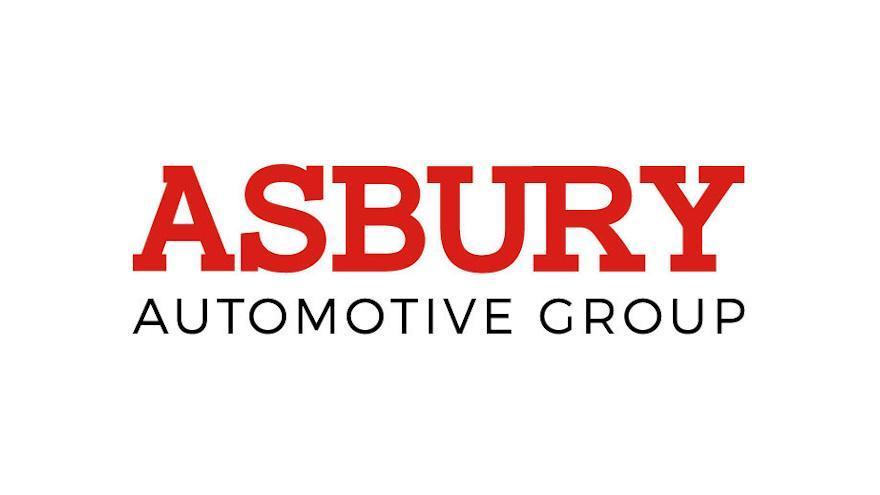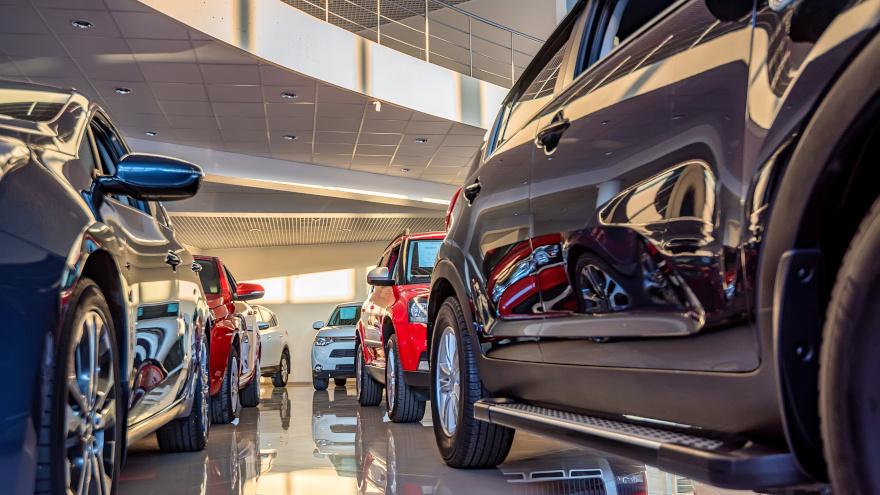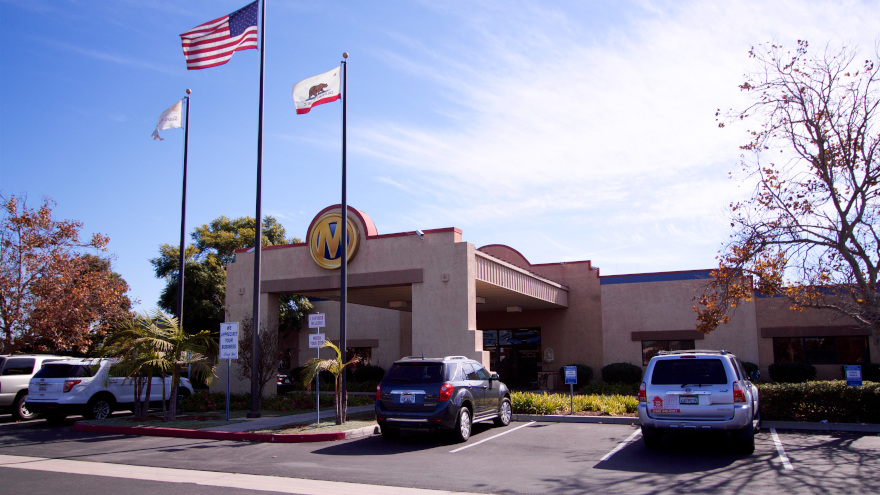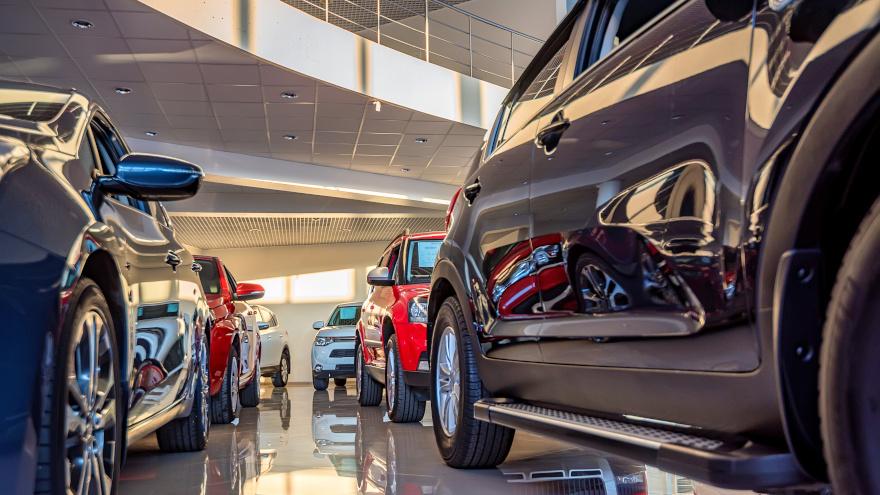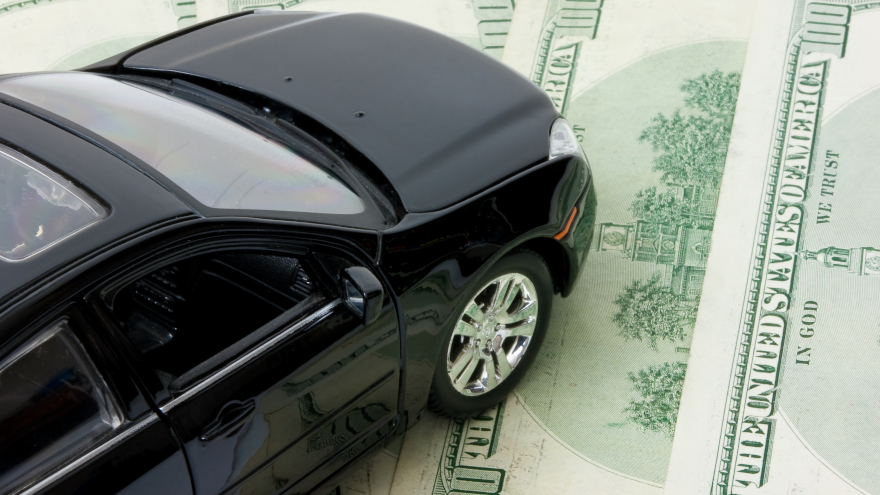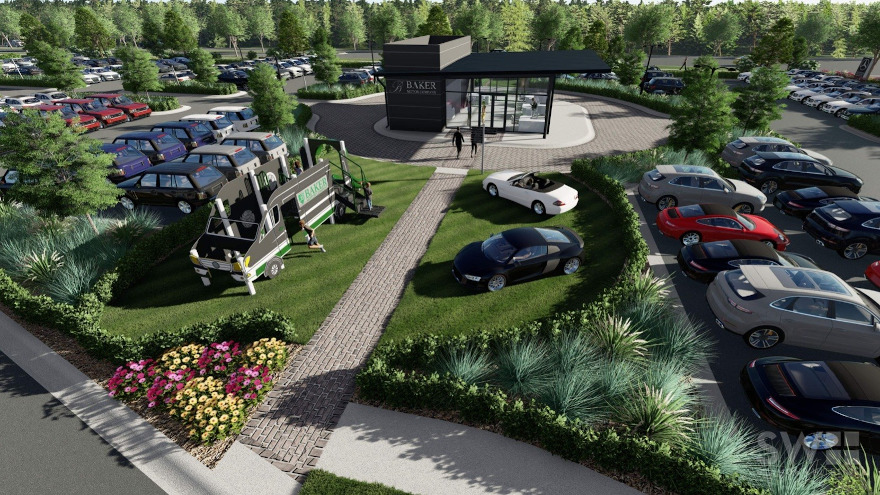To use store vernacular, Asbury Automotive Group’s acquisition of Park Place Dealerships finally rolled over the curb this week.
Asbury announced late Monday afternoon that it completed its deal to secure Park Place, adding approximately $1.7 billion in annual revenues.
Asbury president and chief executive officer David Hult elaborated about how the dealer group overcame pandemic-triggered challenges to complete the acquisition first announced back in December, nearly scrapped in March before being revitalized in July.
“Park Place remains one of the best operators of luxury stores in the industry. Their portfolio of stores comes with a strong base of loyal clients and long-term team members throughout the high growth Dallas/Fort Worth market,” Hult said.
“We are thankful to both the Asbury and Park Place employees who have worked tirelessly over the last few weeks to complete this transaction,” he continued. “The talent in both organizations and the resilience of the dealer model have put us in a position to become a stronger and more diversified company. I am pleased to welcome all our new teammates at Park Place.”
Before the development, Park Place owned and operated what Asbury described as a portfolio of high volume, award-winning luxury dealerships with premier real estate. Four stores are ranked among the Top 10 stores in volume in the country amongst their franchise: Mercedes-Benz, Lexus, Porsche and the Jaguar/Land Rover.
In addition, the other Lexus store and the Volvo store are ranked in the Top 20 stores in volume nationally, according to Asbury.
"The luxury segment has historically delivered strong and stable margins that are significantly above those achieved by mid-line import and domestic brands,” Asbury said in a news release. “Luxury stores also tend to be more resilient in economic downturns, and have higher and more stable margins, fewer dealers nationwide and a higher portion of gross profit from parts and service.”
The dealer group also highlighted the transaction will increase Asbury’s geographic mix to 28% of revenue derived from the Texas market and will further diversify the company’s overall portfolio from 36% to approximately 49% of revenue derived from luxury brands.
Presidio was the exclusive advisor to Park Place on the sale.
Used-vehicle sales this month are on track to beat year-ago figures by 4% and top July’s numbers by 2%, according to a forecast released Tuesday by ALG.
Specifically, the analytics division of TrueCar is calling for 3.6 million used-vehicle sales for August.
ALG chief industry analyst Eric Lyman said the year-over-year gain in used-car sales comes “as consumers turn toward the used-car market for cost savings during these uncertain economic times, and also due to some supply shortages on the new-vehicle side.”
Lyman adds in the news release, “While this heightened demand is creating upward pressure on used retail prices, it is making it a great time for consumers to get top value on a trade-in on popular used vehicles.”
Recent analyses have echoed the latter sentiment.
Dealers were paying an average of $14,066 on trade-ins during July, which was up 16.4% from the $12,083 average trade-in value in June, according to a report from Edmunds.
This movement reflects what Edmunds executive director of insights Jessica Caldwell called a “dramatic recovery” in pre-owned — one that has led to dealers paying more to replenish the used supply moving quickly off their lots.
“The used market is experiencing a dramatic recovery: Used vehicles were sitting almost untouched at the start of the pandemic, and now they’re practically flying off dealer lots,” Caldwell said in a news release.
“Dealers are willing to pay more to acquire inventory to meet the surge in demand for used cars, which is great news for car owners because it means they can expect to get a higher value for their vehicle if they sell or trade right now,” Caldwell said. “But time is of the essence because there’s no guarantee that these unique market conditions will continue for long.”
While prices and sales are high, used inventory levels are low.
A Cox Automotive Data Point report from Thursday shows that last week began with 2.16 million unsold used vehicles, down from 2.67 million from a year ago and marketing the “lowest level in years.”
Cox Automotive estimates that nationally, there is 33 days’ supply of unsold used vehicles, as of that report. A year ago, it was closer to the norm at 43 days.
The company said used supply levels are “stabilizing,” however, compared to declining new-car supply and that days’ supply has stayed in the 32-35 range the last two months.
Still, used-car inventory remains short amid strong retail demand and disruptions to supply channels, according to the Cox Automotive report.
“Used-vehicle demand has been strong since March’s massive COVID-19 market shock,” Cox Automotive senior economist Charlie Chesbrough said in the Data Point report. “The paycheck protection stimulus program seems to have provided many used car shoppers the ability to purchase.”
Manheim added six more auctions Monday to its pilot return of in-lane bidding, meaning there are now 43 auctions participating in this pilot, which has been running roughly two months.
Dealers at the pilot locations are able to bid in-lane through Digital Block sales, which include in-lane bidding on site at Manheim auctions with a live auctioneer and simulcast.
Vehicles remain stationary and can be viewed on screens. They do not move through lanes.
The six auctions added to the pilot this week are:
Manheim Riverside
Manheim Southern California
Manheim San Diego
Manheim California
Manheim San Francisco
Manheim Tucson.
In emailed comments, Manheim division vice president Alan Lang said: “As we continue with our reopening plans, we’re hearing positive feedback from dealers about in-lane bidding at our pilot sites. After ongoing safety reviews, we will add six additional sites beginning Aug. 24, bringing the total to 43 locations.
“For all pilot sites, strict safety protocols, including requiring facial coverings, social distancing and a daily review of pandemic data in each market will remain in place,” Lang said. “We continue to be intentional with our decision to expand the program, as health and safety remain at the center of everything we do. Should the data continue to support a safe environment for team members and clients, we anticipate adding more locations.”
Manheim started the pilot on June 22.
Especially for dealerships in larger metropolitan areas where public transit is more prevalent, a new Cars.com study reinforced how valuable vehicles are to consumers nowadays — particularly ones who have made a purchase since the coronavirus pandemic began.
Based on the individuals who participated in the Cars.com survey conducted earlier this month, 21% of respondents said they have purchased a car in the last six months, with 57% saying it was due to the pandemic.
And a separate study conducted by Cars.com also highlighted how valuable personal transportation is to parents who have children still attending school in in-person settings.
While 39% of parents say they will send their kids back for an in-person education in the fall, Cars.com indicated 53% are opting for virtual learning. But for those returning to the classroom, school buses and public transit will take a backseat as many parents opt to drive themselves, according to Cars.com.
Perhaps summarizing the upbeat trends that could be beneficial to dealerships, Cars.com assistant managing editor Matt Schmitz said in a news release, “Personal vehicles will dominate … as distrust in public transport and ride-sharing continues.”
Taking a deeper look at the consumer survey connected with employment, new data revealed changes to Americans’ everyday work commute as many plan (or plan not) to head back to the office in the weeks and months to come.
While Cars.com found more than a third of Americans are currently working from home, the site said consumers still are putting greater reliance on their personal vehicle for other life activities.
The site discovered 66% of workers are saving valuable time on their commutes, leaving subway cars, bus seats and train platforms largely empty as they continue to ditch the office.
“As much of the American office workforce continues to work remotely, there is a major shift in commuting behavior, which is likely to have a lasting impact long after we return to the office,” Schmitz said.
“Workers are saving up to an hour or more a day by not commuting, and finding significant value in this newfound gift of time. And when they do finally return to the office, it won’t be via mass transit,” he continued about that Cars.com’s survey orchestrated Aug. 13-14 that included 3,062 respondents.
Also according to that Cars.com study, the work commute has changed, possibly forever, based on findings such as:
43% of Americans lack faith in fellow passengers to abide by health and safety protocols, while 57% at least moderately trust other passengers.
30% of those who are currently working at an office at least part-time are commuting less often.
35% of future commuters plan to commute less, even after returning to work in person.
Cars.com also mentioned that 62% of workers have swapped public transportation for their own vehicle, leading to these other trends uncovered in the survey:
— 65% of bus riders have stopped riding or are riding less frequently.
— 60% of subway or commuter rail riders have stopped riding or are riding less frequently.
— 59% are using ride-sharing less often than before.
— 49% believe it will be at least three months before travel on mass transit returns to pre-COVID levels. An additional 7% state they will never resume their pre-COVID mass transit levels.
By working outside of the office, Cars.com found 66% of Americans are saving 30 minutes or more per day on their commute. The site added 40% of commuters are saving up to one hour per day, while 26% of commuters are saving more than one hour per day.
Cars.com also mentioned the “newfound gift of time” is allowing Americans to relax, connect and invest in themselves as these findings revealed:
— 43% of would-be commuters are watching more TV and movies with their extra time.
— 38% are spending more time exercising.
— 33% are spending their spare time with family and friends.
— 19% are using the extra time to work more.
More details about school-transportation survey
Separately, Cars.com shared new data revealing parents’ decisions on safe back-to-school transportation this year.
Of those kids returning for in-person learning, it won’t be on the school bus, according to these trends Cars.com found:
— 55% of parents plan to use their vehicle to take their children to school, and parents planning to carpool with other families is up 22% from pre-pandemic.
— 30% of parents will have their kids take the school bus, a 31% drop compared to pre-pandemic.
— 3% of parents will have their kids take public transit, a 25% decrease from before the pandemic.
— 73% of parents are planning for longer drop-off lines this year as more people drive.
“As parents and local officials make the decision on how the school year will look, it’s clear that back-to-school routines will change. We found that the majority of parents will opt for their family vehicle as the primary mode of back-to-school transport, nearly double the number of parents sending their kids on the bus. Interestingly, we’re seeing a significant increase in the number of families planning to carpool with friends or neighbors, which may mean parents feel it’s still a safer alternative to the school bus,” Cars.com editor in chief Jenni Newman said in a news release.
“It’s not entirely surprising to see that parents want to drive their kids themselves. Americans have used their cars as a safe, reliable escape throughout the pandemic, and the value in personal car ownership will only increase as we continue to feel the impact of this crisis into the second half of the year,” Newman continued.
For those planning to carpool, Cars.com found that cleanliness is a top priority, mention these survey findings:
— 79% will require masks for all passengers in their vehicle.
— 68% will sanitize their vehicle regularly.
— 50% will travel with fewer people in the vehicle.
“For families planning to return to school, recent CDC guidelines on ridesharing recommend that every child in the carpool, as well as the driver, wear cloth face coverings for the entire ride and high-touch surfaces be frequently sanitized,” Newman said. “Parents should try to safely distance passengers as much as possible while in the car, and consider rolling down the windows to increase airflow.”
With more time spent in the vehicle, Cars.com has found that for 68% of consumers the pandemic has sped up their purchase timeline for a new or upgraded vehicle.
Furthermore, the number of people searching online for features such as moonroofs and sunroofs to allow for more airflow has increased since before the pandemic, according to the site.
Cars.com recommended the following top five family-friendly vehicles for the upcoming school year that allow for more distancing within the vehicle.
—Subaru Outback: Cars.com noted that the Outback has a loyal following for adventure-seeking families due to its quiet, spacious interior, excellent visibility and affordable pricing. With comfortable seats in the front and back for a family of five, this popular wagon has plenty of legroom and a backseat that sits slightly raised, providing stadium-style seating to help passengers see out the front windshield.
—Chrysler Pacifica: Cars.com said the Pacifica is popular among minivan fans because of its roomy interior, optional captain’s chairs or bench seating in select models, and quiet, comfortable ride. Seating seven to eight people, ample legroom and storage make it a perfect fit for busy families. The rear-seat Uconnect Theater system and optional panoramic moonroof offer all riders an escape.
—Volkswagen Atlas: Cars.com’s 2020 Family Car of the Year boasts a spacious interior and a comfortable, quiet ride. A roomy third row provides enough space even for adults to enjoy the ride, while the bench-style second row easily allows three child seats to fit across. A moonroof option is available.
—Hyundai Palisade: Cars.com’s Best of 2020 carries seven to eight people comfortably depending on its roomy second- and third-row seating configuration. The luxury-grade interior provides riders with a relaxing, quiet ride, and large side windows and an optional moonroof are great for a lively game of I Spy or car bingo.
—Ford Expedition: Large outside and in, Cars.com highlighted the Expedition is one of the few full-size SUVs that provides the spacious interior suggested by its exterior bulk, with the “hands-down roomiest” third row even if you don’t opt for the extended Expedition Max. With a maximum seating capacity of eight, it easily accommodates your kids and other carpoolers with plenty of room.
Sales of vehicles up to 8 years old were steady at auctions the week ending Aug. 16 and continued to be softer than pre-virus forecasts, according to a Used Market Update from J.D. Power.
But certain segments, particularly on the mainstream side of the market, are seeing auction sales climb.
Overall, there were 95,000 auction sales the week ending Aug. 16, same as the week before, continuing a bit of softness in the market, according to J.D. Power's report.
Throughout June and July, weekly auction sales volumes remained at or above 100,000 units.
“While sale volumes remain healthy, sales over the past two weeks have been an average of 7% less than our pre-virus forecast for each respective period,” J.D. Power said in the its report.
Black Book noticed a similar trend its COVID-19 Market Report released Tuesday.
“Wholesale sold volume continued to be lower compared to last year in the last few weeks, as used inventory remains limited and many dealers are searching for alternative ways of acquiring inventory,” Black Book said.
That said, auction sales volumes have improved dramatically since the impact from the onset of the pandemic, and are largely on par with year-ago levels.
A graph in the Black Book report shows how each week of 2020 compares to their respective year-ago levels. While the declines in April were as big as 80%, recent weeks generally show changes in the neighborhood of 10% or less, up or down
“Despite most auctions continuing to operate under an all-digital platform, sales volume has rebounded to a level consistent with this time last year,” Black Book said in its report. “This is being driven by strong retail sales, consumer demand, and the need to backfill, leading dealers to use auctions as their main source of inventory.
“The number of sales bottomed out around an 80% year-over-year decline when most auctions closed their physical sales (and some closed entirely) at the end of March.”
Steady sales rates
Auction sales rates are also fairly stable. Another graph in the Black Book data set shows the estimated average weekly sales rate at U.S. auctions reached a low of 15% the week of March 30. It then climbed 11 straight weeks, and since the week of June 8, it has remained north of 60%, reaching a peak of 68% for this stretch the week of June 15.
For the week of Aug. 10, it was at 62%.
“At the onset of the pandemic, as shelter-in-place orders went into effect, sales rates quickly tumbled into the teens, but rates began climbing each week and have now stabilized,” Black Book said. “Independents that have been operating a traditional physical sale continue to report the highest sale rates, many consistently exceeding 70% week after week.”
Segment trends
Going back to the J.D. Power report, despite the plateauing in overall sales, mainstream segment auction sales the week ending Aug. 16 were up 3% over the prior week, report, including significant gains for large cars (up 11%), small cars (up 8%) and midsize pickups (up 7%).
Large SUV sales were off 4% and midsize SUV sales fell 5%, with sales for rest of the group steady to slightly up, J.D. Power said.
Among premium segments, auction sales volume fell 4%. There were two outliers: the large premium segment, where sales were up 18%, and small premium, where sales were up 1%.
The most significant drop was for the midsize premium SUV (down 13%), according to the report.
On Wednesday, the Federal Open Market Committee (FOMC) at the Federal Reserve released minutes from its July policy meeting that indicated: “Participants agreed that the path of the economy would depend on the course of the virus, which was seen as highly uncertain.”
According to just-released data from consumer intelligence firm Resonate, a leading provider of consumer data and analytics fueled by artificial intelligence, consumers who indicated a month ago that they were ready to begin resuming certain everyday activities are now wholly reversing their decisions.
That uncertainty potentially could derail the rebound dealerships have been enjoying since the spring when stores could begin retailing vehicles again.
Experian Automotive recapped in a blog post that new- and used-vehicle registrations plummeted 50.8% and 54%, respectively, back in April when compared to the previous year. Experian found the new and used registration declined improved in May with the year-over-year differentials being 33.3% and 32.4% lower, respectively.
In June, Experian found the metric improved even more in June with new registrations being down only 10.6% year-over-year and used registrations actually edging a bit higher compared to the same month last year, ticking up 0.2%.
“It’s difficult to pinpoint the exact reasoning for the gradual return in vehicle sales over the past few months, but we would be remiss not to acknowledge the apparent impact of automaker incentives,” Experian senior director of automotive financial solutions Melinda Zabritski wrote in the blog post, reiterating one of the points she made during a recent episode of the Auto Remarketing Podcast.
The FOMC acknowledged that vehicle purchasing provided some of the evidence for improved consumer spending since businesses began to reopen following stay-at-home mandates. But policymakers are still seeing plenty of examples of business struggling about what to do next.
“In contrast to the sizable rebound in consumer spending, participants saw less improvement in the business sector in recent months, and they noted that their district business contacts continued to report extraordinarily high levels of uncertainty and risks,” the FOMC minutes said. “Several participants relayed examples of some operational difficulties their business contacts were reportedly facing in the current environment. These difficulties included managing disruptions in supply chains, challenges associated with closure and reopening, and elevated employee absenteeism in some cases. Furthermore, some participants noted that small businesses were under significant strain.
“Also, further near-term fiscal support was uncertain,” the minutes continued. “Participants noted that, in light of conditions in the business sector, business investment spending continued to be subdued. Participants generally agreed that actions of consumers and businesses in taking steps to slow the spread of the virus, along with developments in public health, would be critical in ensuring a durable reopening of businesses. In addition, monetary policy and particularly fiscal policy would also play important roles in supporting business activity.”
While the FOMC minutes recapped what policymakers said back in July, Resonate emphasized that its ongoing COVID-19 and emerging issues research and analysis represent a data set that can capture shifting consumer sentiments of in real-time.
Resonate chief executive officer Bryan Gernert explained why that information can be critical for dealerships.
“If you’re using data from February, April or even July to drive your important business and marketing decisions, you’re doomed to fail,” Gernert said in a news release. “If there’s one word that will define the businesses that find success and stability in 2020, it’s agile — agile in how and when you reopen stores, in the types of loyalty offers you present, in modifying experiences to align to consumer sentiment to drive sales. Agile marketing requires you to be data-driven, and you can’t be data-driven if your data is old.
With more than 1,017 attributes drawn from the sixth wave of Resonate’s wide-reaching COVID-19 and emerging issues trend research, highlights of the firm’s latest data collection included:
• The percentage of people worried about the health-related consequences of COVID-19 has increased notably since early June, with 57% now saying they are worried about the health impact of COVID-19 to a large extent.
• 68% of consumers are concerned about the economy to a large extent.
• People who believe the U.S. economy will not return to normal until 2021 or later hit an all-time high in early July at 72.4%.
• 75% of consumers believe life will take seven months or longer to return to normal.
• Grocery stores and pharmacies may start to feel a pinch, as 40.2% of consumers report that they will decrease their in-store visits.
• Even when restrictions are lifted, 32% say they would never attend a crowded activity with thousands of people, such as a concert or sporting event. 38% would never go to a theme park, 31% would never get on an airplane or train, and 54% would never ride mass transit.
• The number of travelers who have pushed their leisure travel into 2021 increased 30% since early June. Now, 65% don't believe leisure travel will return to normal until 2021.
• 62% of people expect to spend the holidays with immediate family only.
• If President Trump wins the election in November, 24.7% of people say they will strongly doubt the accuracy of that outcome, versus 10.5% who say they would strongly doubt the outcome if Joe Biden wins.
• Nearly 90% doubt the trustworthiness of Facebook news and information, 60% believe that the political ads on Facebook are not trustworthy, and 73.4% think Facebook should be responsible for identifying and suppressing false news and information.
“In this sixth wave of Resonate’s comprehensive study, we captured U.S. consumer sentiment as consumers have been tossed about by a dramatic roller coaster of events from pandemics, the fight for racial equality and ensuing political implications,” Gernert said.
“Companies must have the most accurate data to fuel their reopening plans if they want to keep pace with shifting consumer attitudes. To thrive in this environment, businesses need to capture revenue and save costs wherever possible, and that’s where micro-segmentation fueled by hyper-relevant data comes into play,” he went on to say.
Perhaps consolation to consumers as well as dealerships and all types of businesses, policymakers at the Federal Reserve appear to be watching for any details like what Resonate mentioned in an effort to craft future actions.
According to the committee minutes, “Members agreed that they would continue to monitor the implications of incoming information for the economic outlook — including information related to public health — as well as global developments and muted inflation pressures, and that they would use the committee’s tools and act as appropriate to support the economy.”
Wholesale vehicle prices are on pace for a third straight month of record highs, according to a mid-month update of the Manheim Used Vehicle Value Index.
After the first 15 days of August, the index was at 163.4, which is up 15.6% from mid-August 2019.
The Manheim index finished July at a record high of 158.0, beating prior-year figures by 12.5% and the previous record set in June (149.3) by nearly nine points.
As far as the current month, wholesale prices in the first half were up 3.4% from July, parent company Cox Automotive said in an analysis accompanying the index.
That said, the price gains have slowed a bit.
“Manheim Market Report (MMR) prices improved again over the last two weeks, resulting in a 1.4% cumulative increase in the first two weeks of August on the Three-Year-Old Index,” analysts said. “Over the first 15 days of August, MMR Retention, which is the average difference in price relative to current MMR, was at or above 99.8% every day and averaged 101.0%. Price appreciation has been slowing in recent weeks.”
Among the select segments shared in the Manheim data, pickup truck prices in mid-August were up 22.5% from where they were in mid-August 2019.
Luxury cars weren’t far behind (up 20.9%), followed by SUV/CUVs (up 12.6%). Compact car values climbed 8.1%, midsize cars were up 8.2% and vans were up 2.9%.
In a related analysis, J.D. Power found that wholesale prices during the first full week of August were up 0.8 percentage points. The company’s Weekly Wholesale Auction Price Index was at 114.8 for the week ending Aug. 9, which was the 16th straight time wholesale prices had climbed week-over-week.
That streak of sequential price gains ended last week, as prices for the week ending Sunday were even with the prior week, J.D. Power said in an update Wednesday.
“However, prices have increased 36% since their trough in April and are 15% higher than the beginning of March. Wholesale prices remain strong, but the used market is slowing,” J.D. Power said in Wednesday's update.
“Prices are expected to continue to level off in August as pent-up demand wanes and pandemic-related macro-economic headwinds increase. By year's end, prices are expected to be slightly greater than pre-virus levels,” the company said. “It is important to note, however, that while the outlook is relatively optimistic, there remains a great deal of uncertainty surrounding the impact of new virus outbreaks, the potential for another round of federal stimulus, and overall employment conditions.
“Given these unknowns, a heightened degree of market volatility should be expected.”
Jim Ellis Automotive Group understands that school supplies do not include just bookbags, paper and writing utensils nowadays.
In response to the shortage of personal protective equipment (PPE) available to teachers and students in the Atlanta area, Jim Ellis announced on Tuesday that the dealer group will be donating a portion of every sale of all new or pre-owned vehicles to Atlanta Beats Covid (ABC) during its upcoming Labor Day sales event.
The event will take place from Aug. 31 through Sept. 7 as all 18 Jim Ellis family-owned and operated dealerships will participate.
“As we enter a new school year in the midst of a pandemic, teachers and educational staff are having to navigate unchartered territories,” the Jim Ellis Automotive Group said in a news release. “Teachers are currently going into their schools to plan curriculum, setup their classrooms and meet with other staff members, all in a potentially vulnerable environment.
“Unfortunately, many schools are not able to provide educators or students with face shields, masks or other PPE. Many schools and teachers also encounter difficulties getting their hands on PPE due to a nationwide shortage and shipping delays,” the group continued.
ABC is an ad-hoc group of volunteer makers, engineers, fabricators, seamsters and other Southeast industry experts that was founded to address the huge PPE shortage facing our medical workers and has now expanded to help our educators during the COVID-19 pandemic.
Since March, ABC has provided over 28,000 pieces of PPE to the Atlanta community and 2,357 face shields to area schools since July.
“We’re honored and excited to team up with Atlanta Beats Covid to provide face shields for teachers through our Labor Day sales event,” said Stacey Ellis, vice president of Jim Ellis Automotive Group. “Our hope is that we can help provide comfort and safety to those doing the important job of teaching our children.”
During the holiday sales event, prospective buyers can shop in-person or at any one of the 18 Jim Ellis family-owned and operated dealerships. Shoppers also have the option to shop from home using the Jim Ellis Express Way.
With the Jim Ellis Express Way, shoppers can search and compare thousands of vehicles in the entire Jim Ellis dealership network from their phone, computer or tablet. Shoppers also can configure their payment, value their trade, secure financing and more.
At-home services allow potential buyers to complete the entire purchase without ever visiting a dealership — including the option to submit all paperwork electronically, complete a test drive and take delivery of the vehicle at home.
For more information about ABC, request PPE or to donate, visit https://atlantabeatscovid.com/.
While some industry metrics are moving more significantly, Swapalease.com is seeing only modest changes in approval rates for consumers using its site to secure a short-term transportation solution.
Site officials reported earlier this week that lease credit applicants registered a 65.1% approval rate in July, a slight decline from the June rate of 67.1%.
Swapalease noticed July included a higher number of applicants with qualifications for taking over another person’s lease contract yet saw a slight decrease in the number of applicants who were approved. The approval ratings are also slightly lower than the same month during the past two years.
Last July, approximately 69.1% of applicants were approved, and in July of 2018, a healthy 71.2% of applicants gained approval, according to Swapaleae.
Site officials acknowledged approval rates have continued to fluctuate since January when the spread of COVID-19 first began. The approval rates continued to rise in January and February with slight fluctuations each month from March to July.
“While the Consumer Financial Protection Bureau reported credit applications for automotive loans fell between 30% and 50% since March, we’ve been fortunate to see an increase in shoppers and credit applications to take over another person’s lease each month,” Swapalease executive vice president Scot Hall said in a news release.
“Shoppers are looking for alternative means to vehicle acquisition, and sites like Swapalease.com make that possible. Shoppers want short-term commitments with low risk during unprecedented times,” Hall went on to say.
With social distancing the new COVID-19 norm for dealerships and other retailers and public spaces, some of the features of the new Mercedes-Benz dealership that Baker Motor Co. wants to open by the end of the year might be even more valuable.
Stretching over 13 acres at 425 Sigma Drive off Interstate 26 in Summerville, S.C., Baker highlighted its planned dealership is designed to be a nice place to relax or entertain customers while waiting on their vehicles to be serviced. It includes walking and biking trails, a kiddie-land play area and a pond for fishing.
The company said the site will also include a car wash for all Baker Motor Co. clients, an eight-car showroom, consultation desks, conference rooms and lounges. The interior design is fully open with screens separating different sections.
The new campus will also incorporate The Baker Collection, a grouping of 12 luxury brands found previously only on Savannah Highway. These ex-loaner vehicles will have been gently used with low miles on them.
“All of them will be the current model year,” Baker said in a news release.
Each section in the area will have its own names such as Mercedes-Benz Lane or Land Rover Boulevard.
Baker said plans for the property include a fully landscaped drive akin to Azalea Drive, the road leading into Augusta National Golf Course in Georgia.
The dealership plans to open this facility in December.
The privately held Baker Motor Co. operates dealerships for 14 luxury brands including Rolls-Royce, BMW, Maserati, Alfa Romeo, Porsche, Land Rover, Jaguar, Smart Car, Mercedes-Benz, Sprinter, Infiniti, Buick, GMC and Cadillac.

